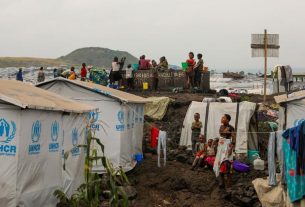Indonesia and the United States are finalizing a reciprocal tariff agreement that will reshape bilateral trade, with $22 billion in direct Indonesian purchases and an estimated $38 billion in annual trade flows affected by tariff reductions. The deal, approved by Presidents Prabowo Subianto and Donald Trump, is now in the legal drafting stage, according to Indonesia’s Coordinating Minister for Economic Affairs, Airlangga Hartarto.
Direct Commitments
As part of the agreement, Indonesia has pledged to purchase:
- $15 billion in U.S. energy products
- $4.5 billion in U.S. agricultural goods
- 50 Boeing aircraft, primarily Boeing 777s, valued at $2 billion
Total direct commitments: approx. $22 billion.
Tariff Adjustments
- Initial U.S. tariff on Indonesian goods: 32%
- Reduced after negotiations: 19%
- Indonesia to eliminate tariffs on 99% of U.S. exports, including agriculture, industrial goods, and technology.
Broader Trade Impact
The reciprocal tariff framework is expected to influence $38 billion in annual bilateral trade flows, with zero tariffs on commodities such as palm oil, cocoa, and chocolate from Indonesia, and expanded access for U.S. exports.
Strategic Significance
Officials in both Jakarta and Washington describe the deal as a strategic partnership, strengthening ties in aviation, energy, and agriculture. Analysts suggest it could serve as a template for future U.S. trade agreements in Asia, while positioning Indonesia as a pivotal Indo-Pacific partner.
📊 Deal Breakdown Chart
Indonesia–U.S. Reciprocal Tariff Agreement (2025)
| Category | Value / Adjustment |
|---|---|
| U.S. Energy Exports | $15 billion |
| U.S. Agricultural Exports | $4.5 billion |
| Boeing Aircraft (50 units) | $2 billion |
| Total Direct Purchases | $22 billion |
| Annual Trade Impact | $38 billion |
| Initial U.S. Tariff | 32% |
| Reduced Tariff | 19% |
| Indonesia Tariff Cuts | 99% of U.S. exports |
Summary: The Indonesia–U.S. tariff deal represents a $22 billion direct purchase commitment and a $38 billion trade impact, marking one of the most significant bilateral trade agreements in recent years. It underscores Indonesia’s growing role in the Indo-Pacific economy and the U.S. strategy of securing bilateral trade partnerships.
President Donald Trump by rawpixel and Prabowo Subianto Picture by Gerakan Indonesia Raya


